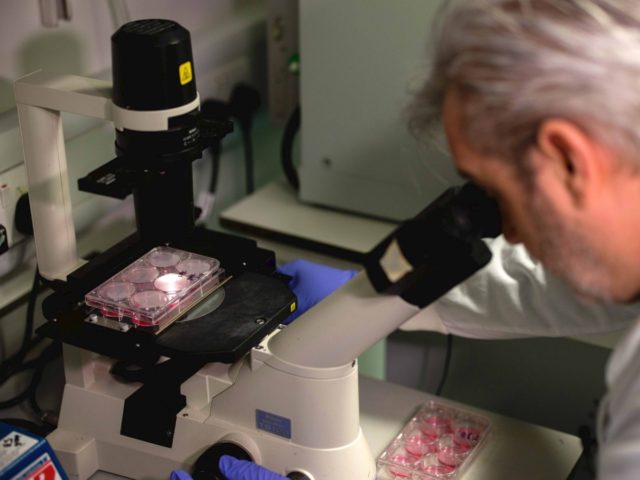The New England Journal of Medicine reported Tuesday that the coronavirus can survive for 72 hours on steel and plastic, which may be one of the factors that has caused “community spread” among people who have not traveled.
Scientists tested the viability of the virus on various surfaces, and concluded that coronavirus has similar longevity to the Severe Acute Respiratory Syndrome (SARS) virus that caused a smaller outbreak fifteen years ago:
Our data consisted of 10 experimental conditions involving two viruses (SARS-CoV-2 and SARS-CoV-1) in five environmental conditions (aerosols, plastic, stainless steel, copper, and cardboard). All experimental measurements are reported as means across three replicates.
SARS-CoV-2 [coronavirus] remained viable in aerosols throughout the duration of our experiment (3 hours) …
SARS-CoV-2 was more stable on plastic and stainless steel than on copper and cardboard, and viable virus was detected up to 72 hours after application to these surfaces (Figure 1A), although the virus titer was greatly reduced (from 103.7 to 100.6 TCID50 per milliliter of medium after 72 hours on plastic and from 103.7 to 100.6 TCID50 per milliliter after 48 hours on stainless steel).
An earlier article in the Journal noted that SARS had a higher mortality rate than coronavirus. However, the authors of the new article note, coronavirus has been found to have a much higher “viral load,” meaning it replicates more rapidly, and does so before the onset of symptoms, meaning a person may spread it before knowing they are sick.
Experts are currently concerned that if the virus is not checked, it could kill millions of people and overwhelm hospital systems — even if it only kills a tiny fraction of those infected — because it is so easily spread.
Joel B. Pollak is Senior Editor-at-Large at Breitbart News and the host of Breitbart News Sunday on Sirius XM Patriot on Sunday evenings from 7 p.m. to 10 p.m. ET (4 p.m. to 7 p.m. PT). He earned an A.B. in Social Studies and Environmental Science and Public Policy from Harvard College, and a J.D. from Harvard Law School. He is a winner of the 2018 Robert Novak Journalism Alumni Fellowship. He is also the co-author of How Trump Won: The Inside Story of a Revolution, which is available from Regnery. Follow him on Twitter at @joelpollak.

COMMENTS
Please let us know if you're having issues with commenting.